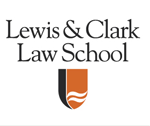Animal Law Review
First Page
221
Abstract
On its face, the Thirteenth Amendment outlaws the conditions and practices of slavery and involuntary servitude wherever they may exist in this country—irrespective of the victim’s race, creed, sex, or species. In 2011, People for the Ethical Treatment of Animals, on behalf of five wild-captured orcas, sued SeaWorld for enslaving the orcas in violation of the Thirteenth Amendment. The case presented, for the first time, the question of whether the Thirteenth Amendment’s protections can extend to nonhuman animals. This Article examines the lawsuit’s factual, theoretical, and strategic underpinnings, and argues that the district court’s opinion ultimately dismissing the suit failed to address the critical issues that animated this case of first impression: Who “counts” as a legal person for the purposes of law? Is it time to recognize nonhuman animals as legal persons, based on progressing scientific and normative views? What principles underlie the Thirteenth Amendment? When and how does the application of the Constitution expand? Can the meaning of the Constitution evolve to encompass the interests of nonhuman animals? Drawing on the United States Supreme Court’s long history of evolving constitutional interpretation, this Article presents four theories of constitutional change, under which the meanings of “slavery” and “involuntary servitude” are expansive enough to include nonhuman animals. Despite the district court’s decision, the case can be properly viewed as the first step toward the legal recognition that the Thirteenth Amendment protects the rights of nonhuman animals to be free from bondage.
Recommended Citation
Jeffrey S. Kerr, Martina Bernstein, Amanda S. Schwoerke, Matthew D. Strugar & Jared Goodman,
A Slave by Any Other Name is Still a Slave: The Tilikum Case and Application of the Thirteenth Amendment to Nonhuman Animals,
Animal L. Rev.
221
(2013).
Available at:
https://lawcommons.lclark.edu/alr/vol19/iss2/3

